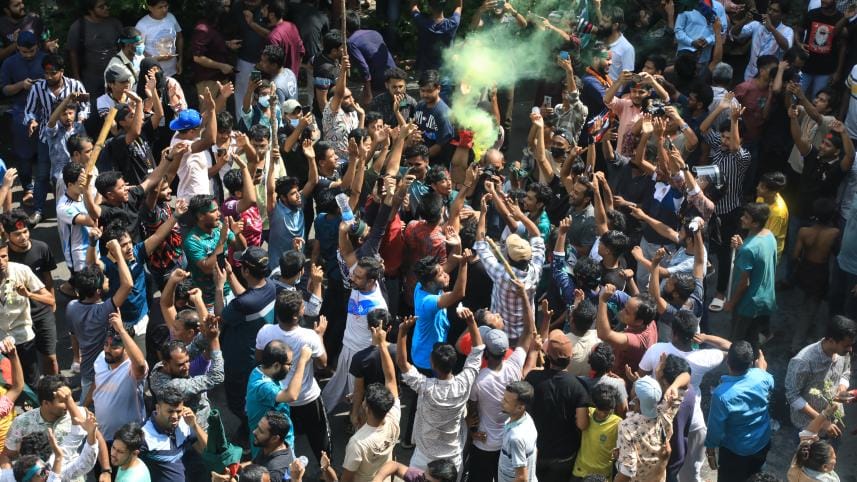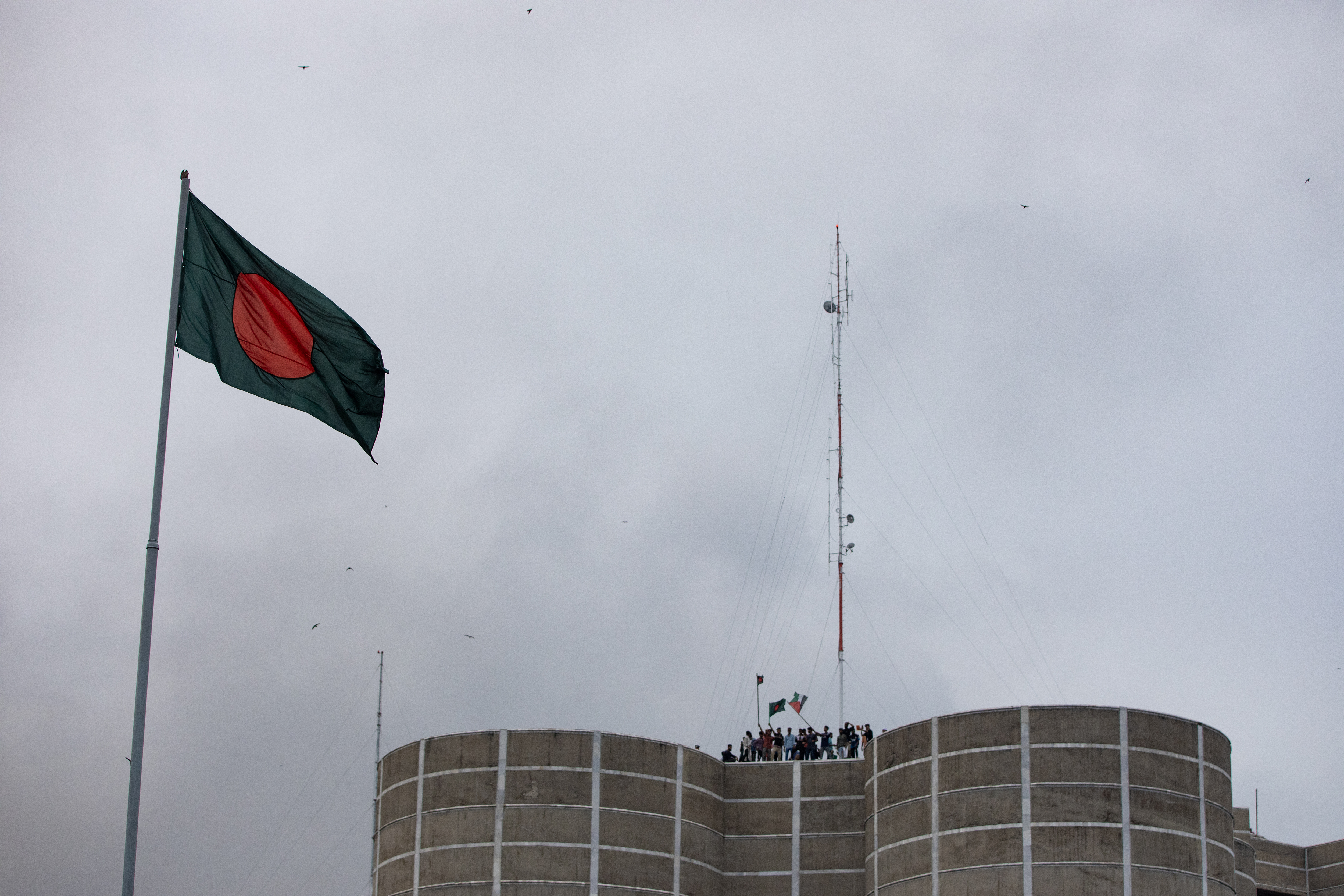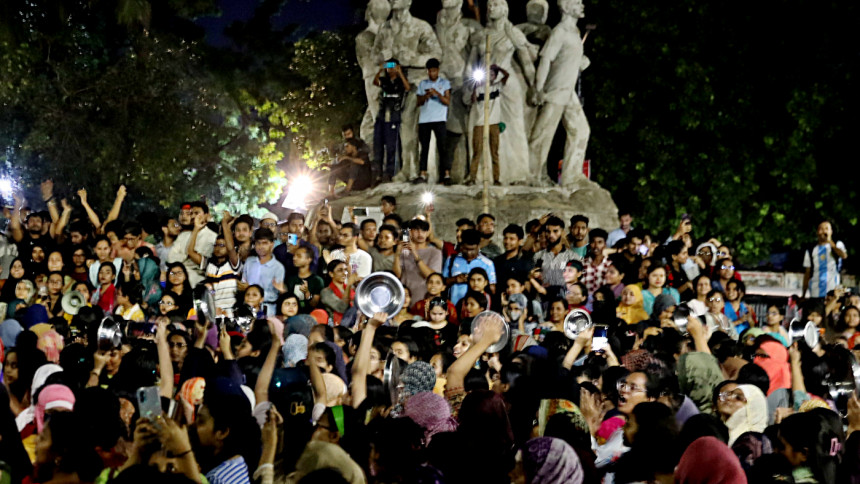Let’s hold a three-point referendum

It appears that the country is celebrating its liberation for the second time. People are optimistic, and the spirit is high. Supported by the community, our youth have eagerly volunteered to clean the cities, manage traffic, and guard the neighborhoods. The situation reminds me of the days immediately after liberation on December 16, 1971. I fondly remember participating in those nightly neighborhood duties as a college student. I hope we maintain the spirit until we achieve our goal—peace and a suitable government for all.
No country in the world has the honor to have a government head with so many international recognitions. At 84, Muhammad Yunus is still alert, cautious, and contemplative. He speaks from his heart. His words are simple, easy to follow, and do not carry the heavyweight of the trophies he has earned. This is true for any topic he speaks on.
He has been asked to lead the country by a student-led popular uprising. His interim government has been accepted by a large majority of the population. It has also earned international support. Dr Yunus has given credence to the interim government, supported our stability, and ushered in a new hope. His "call for unity" needs support to move the nation forward. In view of that, here are a few points to ponder.
Realistically speaking, governing a nation of 170 million people living in densely populated cities without some kind of democracy (representativeness) is an impossible proposition. We have had our experimentation with democracy (BAL and BNP rule), caretaker governments, and military rule (Zia and Ershad). I am convinced, tyranny of any form is "not sustainable" in Bangladesh. We should have learned from our mistakes.
We tend to forget that one party rule has its limits; a viable opposition is a "necessary condition" for survival in a democracy. It is part of the dialectic. No accountability or opposition is an ideal breeding ground for corruption. Never in the history of Bangladesh have so few people amassed so much wealth in such a short period of time. In fact, institutionalised corruption is a corollary effect of bad governance emanating from tyranny.
A mass uprising has created an opportunity to establish a responsible democratic government, a system so to speak. We must establish enough checks and balances, so that "tyranny" is not able to recur. This may require substantial reform of the state and the government. The question is, can an interim government deliver that?
Normally, a revolutionary government, with a mandate from the people, can engage in vigorous reform of the state. The Russians (1917) and Chinese (1949) have done it. They could do it because those movements were ideologically driven.
The current government is an outcome of a mass uprising; it has the support of the people, but it is not an ideology driven revolutionary government. It is a constitution-supported legal endeavour to bring peace and stability. Its service period and terms of reference are not very clear to the common people.
We have had interim/caretaker governments before. They did their job, got dissolved, and left the country to be ruled by elected governments. In the most likely scenario, this government will follow the tradition. The task of the interim government would be to present the nation with a decent government through an impartial election. I hope this time people will show prudence in electing the "right people" in the parliament. The result of the popular uprising must end in a positive outcome, not go in vain.
In order to create conditions for a suitable democracy, this government needs time. A non-partisan administration, police, military, and judiciary are a pre-condition for that. To remove the uncertainty about the legitimacy and continuation of this government, a referendum can be held in consultation with the political parties. The referendum would entail the following issues. I will let the experts write the exact narratives.
1) A vote of confidence for the interim government led by Dr Yunus.
2) Support for the reform needed to deliver an impartial election.
3) Consent for a two to four years tenure for the government (my estimate on time needed for reform).
By now, we should have understood the power of a generation (both boys and girls) that is intelligent, bright, resourceful, and media savvy. The internet has given them an upper hand in every field of knowledge. Their potential has been noted in many international studies. They need platforms to grow based on merit, rigour, and competition. The quota system is a hindrance to their growth.
The potential of this generation would blossom in an open education system that ensures freedom. With that aim we must restore the autonomy of the universities and the higher education system. Autonomous university authorities can decide about partisan student politics on campus. I notice that some universities have already taken initiatives to ban student politics on campus.
Historically, the people in power have misused the police. It is an unfortunate colonial legacy. We want freedom as well as the rule of law. As the police personnel are returning to duty, the law-and-order situation in the country should improve. We shall have to work on legal enactments that would exclude unrestricted house-to-house searches, large scale arrests, block raids, and senseless beatings, etc. We must completely eliminate the patronage of inhumane torture cells. This is simply wrong. Ours is not a colonial police force. They should be serving the people; they need genuine reorientation, education, and training.
As we all know, the unrest and violence have substantially hurt the economy, trade, and commerce. Especially, the export sector has been hurt. Remittance has been slow, international reserve is down. A liquidity crisis is looming. Reversing the economic downturn is a serious challenge for the interim government. Lest we forget, an underperforming economy is a stimulus for agitation.
We are passing through a critical time. The challenge is enormous. We are likely to have diverse opinions to end the crisis. Let us respect disagreements, keep the unity, and move towards a better future.
Dr Abu NM Waheeduzzaman is a professor of Marketing and International Business at Texas A&M University-Corpus Christi.
Views expressed in this article are the author's own.
Follow The Daily Star Opinion on Facebook for the latest opinions, commentaries and analyses by experts and professionals. To contribute your article or letter to The Daily Star Opinion, see our guidelines for submission.

 For all latest news, follow The Daily Star's Google News channel.
For all latest news, follow The Daily Star's Google News channel. 



Comments